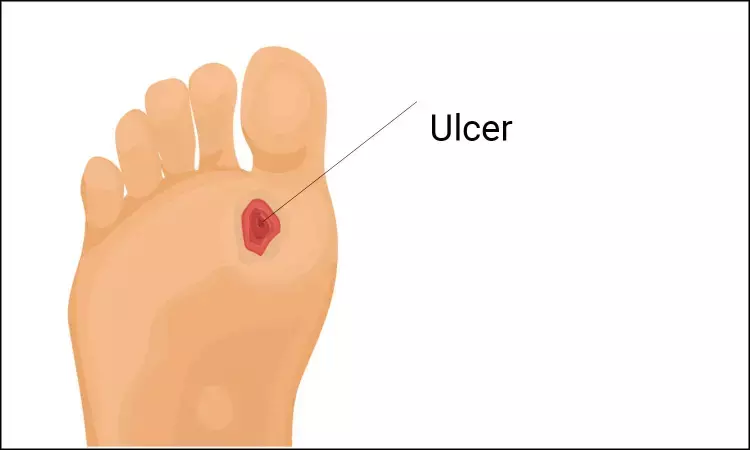- Home
- Medical news & Guidelines
- Anesthesiology
- Cardiology and CTVS
- Critical Care
- Dentistry
- Dermatology
- Diabetes and Endocrinology
- ENT
- Gastroenterology
- Medicine
- Nephrology
- Neurology
- Obstretics-Gynaecology
- Oncology
- Ophthalmology
- Orthopaedics
- Pediatrics-Neonatology
- Psychiatry
- Pulmonology
- Radiology
- Surgery
- Urology
- Laboratory Medicine
- Diet
- Nursing
- Paramedical
- Physiotherapy
- Health news
- Fact Check
- Bone Health Fact Check
- Brain Health Fact Check
- Cancer Related Fact Check
- Child Care Fact Check
- Dental and oral health fact check
- Diabetes and metabolic health fact check
- Diet and Nutrition Fact Check
- Eye and ENT Care Fact Check
- Fitness fact check
- Gut health fact check
- Heart health fact check
- Kidney health fact check
- Medical education fact check
- Men's health fact check
- Respiratory fact check
- Skin and hair care fact check
- Vaccine and Immunization fact check
- Women's health fact check
- AYUSH
- State News
- Andaman and Nicobar Islands
- Andhra Pradesh
- Arunachal Pradesh
- Assam
- Bihar
- Chandigarh
- Chattisgarh
- Dadra and Nagar Haveli
- Daman and Diu
- Delhi
- Goa
- Gujarat
- Haryana
- Himachal Pradesh
- Jammu & Kashmir
- Jharkhand
- Karnataka
- Kerala
- Ladakh
- Lakshadweep
- Madhya Pradesh
- Maharashtra
- Manipur
- Meghalaya
- Mizoram
- Nagaland
- Odisha
- Puducherry
- Punjab
- Rajasthan
- Sikkim
- Tamil Nadu
- Telangana
- Tripura
- Uttar Pradesh
- Uttrakhand
- West Bengal
- Medical Education
- Industry
Age old drug Suramin repurposed for diabetic foot ulcers

BUFFALO, N.Y. — Researchers at University at Buffalo have found that Suramin, a 100-year old drug used to treat sleeping sickness can be repurposed to fight diabetic foot ulcers and oral mucositis.
Anyone who has diabetes can develop a foot ulcer.Diabetic foot ulcer is an open sore or wound that occurs in approximately 15 percent of patients with diabetes and is commonly located on the bottom of the foot.
Ulcers form due to a combination of factors, such as Neuropathy, poor circulation, foot deformities, irritation , and trauma,duration of diabetes and uncontrolled blood sugar.
The breakthrough, led by researchers at the University of Arizona with the support of Keith Kirkwood, DDS, PhD, Centennial Endowed Chair and professor of oral biology in the UB School of Dental Medicine, has the potential to benefit thousands of patients whose current healing options are either partially effective or painful and invasive.
"Our early studies with Suramin to reduce the severity of oral mucositis have been promising. The current challenge is to develop novel topical delivery strategies that could be taken into the clinical stage," says Kirkwood, whose research focuses on oral cancer progression.
Oral mucositis — or ulcers and sores of the mouth and throat — is a common side effect of chemotherapy and radiation in patients with head and neck cancer. About 40% of patients who receive chemotherapy and nearly all patients who receive radiation develop oral mucositis, according to the Centers for Disease Control. This side effect is riddled with symptoms, such as trouble breathing, swallowing and eating, as well as intense pain. If left untreated, these sores can lead to life-threatening infections.
People with diabetes face a similar problem: diabetic foot ulcers. These ulcers, the most common complication that diabetic patients experience, directly result in 85% of diabetes-related amputations, according to the American College of Physicians.
Suramin, the researchers discovered, is effective for wound healing and well-equipped to meet the needs of diabetic and cancer patient populations. The researchers have begun to commercialize the medication in a series of easy-to-use, topical creams, ointments and gels.
The lead investigators from the University of Arizona are Rick Schnellmann, PhD, dean of the College of Pharmacy and Howard J. Schaeffer Endowed Chair in Pharmaceutical Sciences; and Heidi Mansour, PhD, associate professor in the College of Pharmacy.
For further reference log on to:
University of Buffalo
Dr Kamal Kant Kohli-MBBS, DTCD- a chest specialist with more than 30 years of practice and a flair for writing clinical articles, Dr Kamal Kant Kohli joined Medical Dialogues as a Chief Editor of Medical News. Besides writing articles, as an editor, he proofreads and verifies all the medical content published on Medical Dialogues including those coming from journals, studies,medical conferences,guidelines etc. Email: drkohli@medicaldialogues.in. Contact no. 011-43720751


